Dear readers, as we venture into the heart of sportsmanship, the indelible marks of Artificial Intelligence (AI) can’t be overlooked. The journey of AI in sports began modestly, with basic statistics and performance analysis. Over the years, it has grown into a prodigious ally, revolutionizing the way we perceive, engage, and excel in sports.
In the modern sports landscape, AI is more than a luxury; it’s a necessity.
Alex Rode
AI acts as the crucible where data melds with insights, offering a wide range of possibilities. The real-time analysis, predictive modeling, and interactive fan engagement powered by AI are not just enhancing the competitive spirit but also bringing fans closer to the heart of the game. It’s a realm where the vigor of athletes meets the virtue of technology, creating a spectacle that’s enthralling, insightful, and empowering.
Also read: AI-Driven Business Ideas Across Diverse Industries
- Recent Statistics on the Role of AI Technology in Sports
- Growth trends of AI in the sports industry
- Factors propelling the adoption of AI technologies in the sports Industry
- What are the applications of AI in the Sports Industry?
- Core Applications of AI in Sports Explained
- How AI is Enhancing the Spectator Experience in Sports?
- What is the Future Trajectory of AI in Sports?
- How AI helps in analyzing player’s performance in sports?
- Final Thoughts
Recent Statistics on the Role of AI Technology in Sports
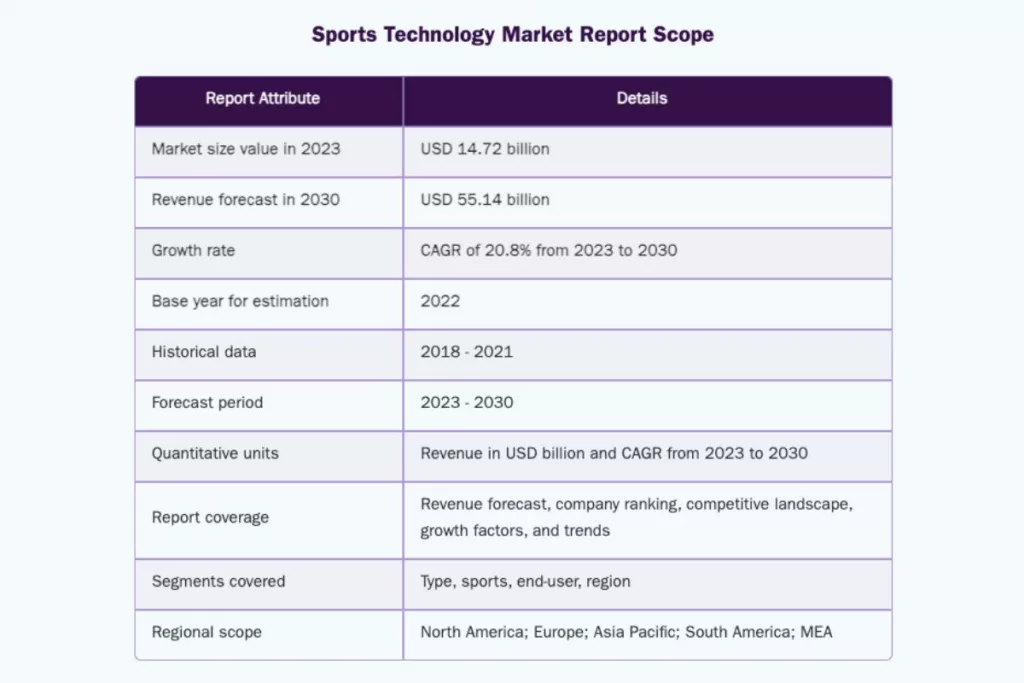
Here are five recent statistics concerning technology in the sports sector from various sources:
- The global sports technology market was valued at around USD 13.14 billion in 2022 and is projected to grow at a Compound Annual Growth Rate (CAGR) of 20.8% from 2023 to 2030.
- Despite challenging macroeconomic conditions, sports technology companies secured USD 7.3 billion in funding up to the end of October 31st.
- The wearable technology sector is expected to constitute a USD 105 billion industry by 2023, with fitness tech contributing a substantial share of this figure.
- The sports analytics market size is predicted to reach USD 4.6 billion by 2025 from USD 1.9 billion in 2020, growing at a CAGR of 19.8%.
- In the domain of athlete performance management, teams and leagues are investing USD 2 billion annually.
Also have a look at: Top 10 Awesome AI Tools
Growth trends of AI in the sports industry
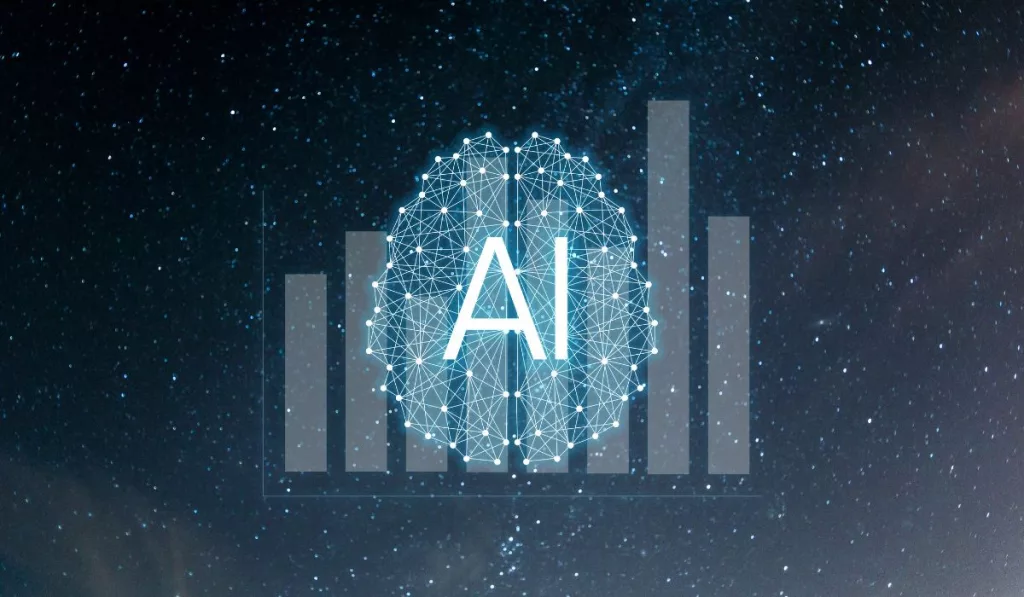
The marriage between AI and sports isn’t just a fleeting affair. It’s a robust, growing relationship. Here are some of the growth trends reflecting the burgeoning romance:
- Market Expansion: The global market for AI in sports is expanding at a brisk pace. The fusion of technology and sports is creating new business opportunities and driving market growth.
- Investment Surge: There’s a notable surge in investments from stakeholders keen on exploring AI-powered solutions in sports.
- Innovative Start-ups: A slew of innovative startups are emerging on the scene, offering AI-centric solutions tailored for the sports industry.
- Consumer Expectations: As fans get a taste of enhanced engagement courtesy of AI, their expectations are soaring, further propelling the market forward.
Factors propelling the adoption of AI technologies in the sports Industry

Why is AI becoming a game-changer in sports? Let’s delve into some factors fueling this fascinating adoption:
- Performance Optimization: AI technologies enable real-time analytics, helping in optimizing the performance of athletes and teams.
- Fan Engagement: AI is amplifying fan engagement by offering personalized experiences and interactive platforms.
- Injury Prevention: By analyzing data, AI helps in predicting and preventing potential injuries, a boon for athletes.
- Operational Efficiency: AI streamlines operations, right from ticketing to managing in-stadium experiences, making processes more efficient and user-friendly.
What are the applications of AI in the Sports Industry?
The below table aims to provide a clear and structured overview of how AI is being utilized in the sports industry, with a focus on the objective and the technological means employed for each application.
| No. | Applications of AI in Sports | Purpose | Tools/Techniques |
|---|---|---|---|
| 1 | Talent Identification and Acquisition | Identify potential athletes | Biomechanics, Analytics |
| 2 | Game Analytics | Analyze game events and statistics | Machine Learning, Data Analytics |
| 3 | Training and Coaching | Improve athlete training and strategies | VR, Predictive Analytics |
| 4 | Predictive Modeling | Forecast game outcomes, player injuries | Machine Learning, Data Mining |
| 5 | Strategy Improvement | Enhance game plans and strategies | Data Analytics, Machine Learning |
| 6 | Injury Prevention | Minimize risk of injuries | Real-time Monitoring |
| 7 | Fan Engagement | Enhance fan interactions | AR, VR, Chatbots |
| 8 | Immersive Experiences | Enrich viewing experiences | AR, VR |
| 9 | Player Performance Analysis | Evaluate player performance | Wearable Tech, Computer Vision |
| 10 | Real-time Monitoring and Tracking | Monitor player health and game statistics | Wearable Tech, Sensor Networks |
Core Applications of AI in Sports Explained
A. Talent Identification and Acquisition

Uncovering a diamond in the rough is a cherished aspiration in the sports world. AI is playing a pivotal role in talent identification and acquisition by:
- Data Analytics: Employing data analytics to assess the performance and potential of aspiring athletes.
- Predictive Modelling: Utilizing predictive models to forecast the future success of athletes, aiding in more informed decision-making.
B. Game Analytics
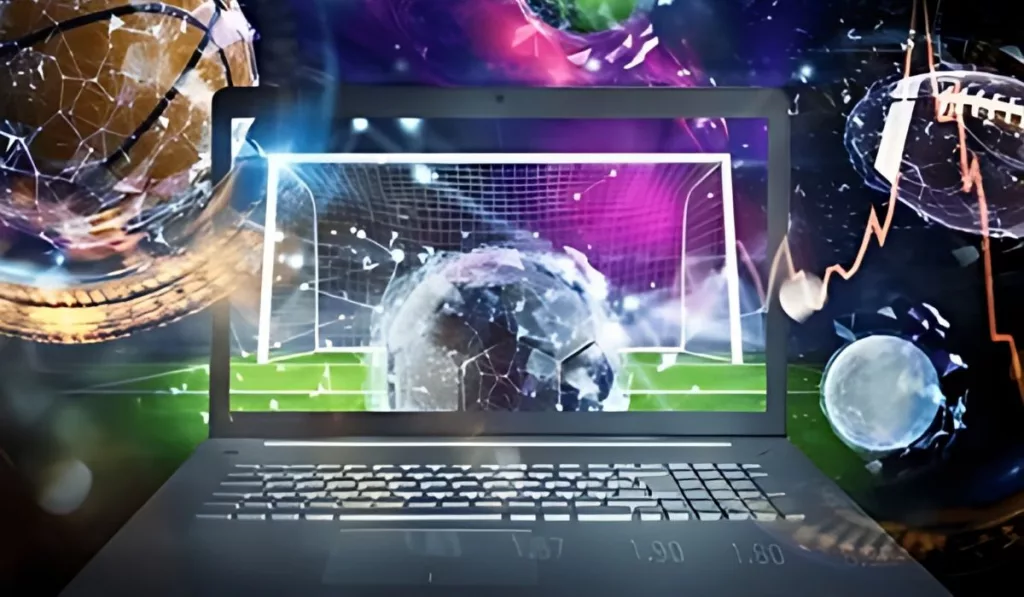
The quest for a competitive edge is eternal in sports. Here’s how AI is reshaping game analytics:
- Real-time Analysis: Providing real-time insights into game dynamics, enabling better strategies.
- Performance Metrics: Generating comprehensive performance metrics that help in assessing the strengths and weaknesses of teams and individuals.
C. Training and Coaching
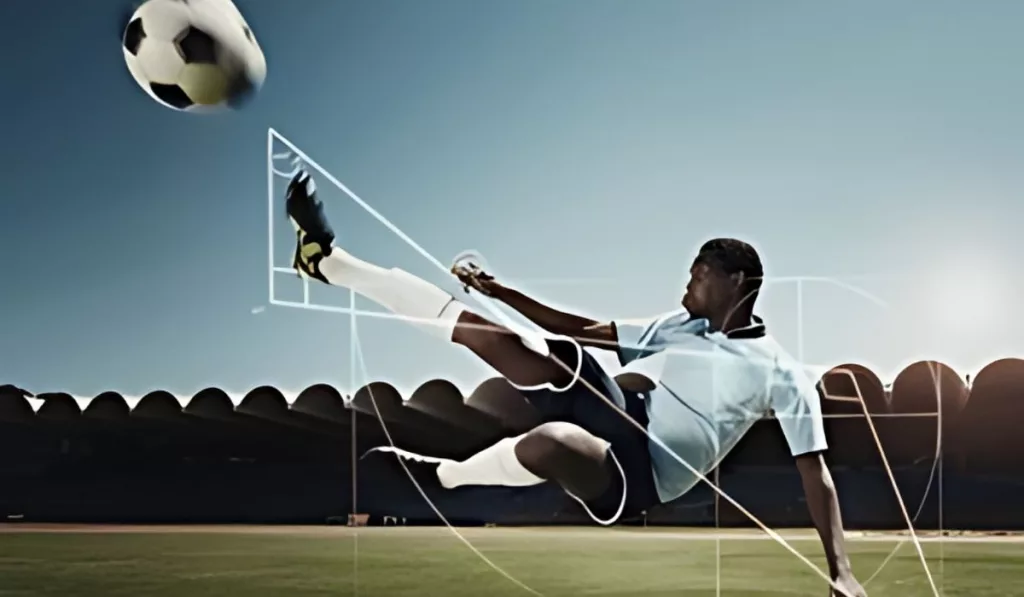
AI is becoming an indispensable ally in training and coaching. Here’s a glimpse of its impact:
- Personalized Training Regimes: Crafting personalized training regimes based on individual athlete data.
- Virtual Coaching: Offering virtual coaching solutions, making high-quality training accessible to aspiring athletes across the globe.
How AI is Enhancing the Spectator Experience in Sports?
1. Fan Engagement
Engagement is the key to any sport’s popularity, and AI is the new maestro conducting the orchestra of fan engagement.
- Personalized Fan Experiences: AI enables personalized fan experiences by recommending options based on historical choices and interacting through real-time chatbots.
- Extensive Marketing: Stadiums are evolving into ‘data temples’ with AI facilitating tailor-made marketing campaigns, games, and sales recommendations to enhance the fan experience.
- Interactive Platforms: AI-powered platforms provide an interactive interface for fans to share their views, get real-time updates, and immerse themselves in the game.
- Predictive Analysis: AI’s predictive analysis provides fans with insights on potential game outcomes, adding an extra layer of excitement and engagement.
2. Immersive Experiences through AR and VR
Stepping into the future, AI along with Augmented Reality (AR) and Virtual Reality (VR) is blurring the line between the virtual and real world for sports enthusiasts.
- Virtual Attendance: Through VR, fans can virtually attend games, getting a front-row experience from the comfort of their homes.
- Augmented Reality Enhancements: AR overlays digital information, like player stats, onto live sports events, enriching the viewing experience.
3. Improved Stadium Experiences
AI assists in ticket ordering, crowd management (using facial recognition), and provides a tailor-made in-stadium experience, making the process seamless and enjoyable for the spectators.
4. Direct-to-Consumer Platforms
Investments in AI-powered direct-to-consumer platforms have enhanced streaming capabilities, bringing fans closer to the games and players they love, like the partnership between Microsoft and the NBA.
5. Enhanced Viewing Experiences
AI, through advanced data analytics, enriches the viewing experience by providing insights, and real-time predictions, and creating more engaging narratives for audiences.
What is the Future Trajectory of AI in Sports?
Upcoming AI technologies in sports
The horizon of AI in sports is bright, with several upcoming technologies poised to further revolutionize the industry.
- Wearable Tech: AI-powered wearable tech will provide real-time feedback to athletes, enhancing performance and reducing injury risks.
- Robotic Referees: AI could lead to the advent of robotic referees, ensuring fair play with unbiased decision-making.
Potential Challenges and Solutions
Like any game-changer, AI brings along its set of challenges, yet with every challenge comes a solution waiting to be discovered.
- Data Privacy: Ensuring data privacy will be paramount as AI technologies become more embedded in the sports industry.
- Cost Barrier: The initial investment in AI technologies could be a hurdle for some organizations, yet the long-term benefits are likely to outweigh the costs, making it a worthy investment.
How AI helps in analyzing player’s performance in sports?

The integration of Artificial Intelligence (AI) in sports has opened up new avenues for analyzing players’ performance, providing insights that were previously unattainable or took a considerable amount of time and effort to obtain. Here’s a comprehensive view on how AI plays a pivotal role in sports performance analysis:
- Data Collection and Processing:
- AI can automate the process of collecting vast amounts of data from various sources including video footage, wearable sensors, and manual inputs.
- The data collected can range from simple statistics to complex metrics such as player movements, speed, and heart rate.
- Video Analysis:
- AI-powered video analysis tools can automatically track players, the ball, and other relevant entities on the field.
- These tools can identify patterns, provide annotations, and generate insights like heat maps, possession statistics, and player trajectories.
- Performance Metrics and Benchmarking:
- AI can process data to create performance metrics that help in evaluating a player’s performance against predefined benchmarks or against other players.
- Comparative analysis becomes significantly more precise and faster with AI, enabling coaches and analysts to make well-informed decisions.
- Predictive Analytics:
- By analyzing historical and real-time data, AI can help in predicting future performance and possible injuries.
- This can be crucial for planning training regimens and strategies for upcoming games.
- Real-time Feedback:
- AI can provide real-time feedback to coaches and players during training or a game, allowing for immediate adjustments.
- This instant feedback can be instrumental in improving performance and adapting strategies on the fly.
- Customized Training Plans:
- AI can assist in designing personalized training programs for players based on their unique strengths, weaknesses, and performance metrics.
- This can help in optimizing a player’s development and ensuring they are training in the most effective way.
- Injury Prevention and Rehabilitation:
- Through motion analysis and monitoring physiological data, AI can help in identifying the risk of injuries.
- Post-injury, AI can support rehabilitation by monitoring recovery and suggesting adjustments to training plans to prevent re-injury.
- Research and Development:
- AI can support R&D efforts to improve sports equipment, training methodologies, and overall athletic performance through data analysis and simulations.
Final Thoughts
The role of Artificial Intelligence in sports heralds a new era of data-driven decision-making, enhancing athlete performance, fan engagement, and operational efficiencies, thereby promising a transformative impact on the sporting ecosystem. Through predictive analytics, real-time monitoring, and deep learning algorithms, AI not only augments the sports industry’s ability to interpret complex datasets but also opens avenues for personalized experiences, innovative game strategies, and a deeper understanding of the intricate dynamics of physical exertion and team synergy.




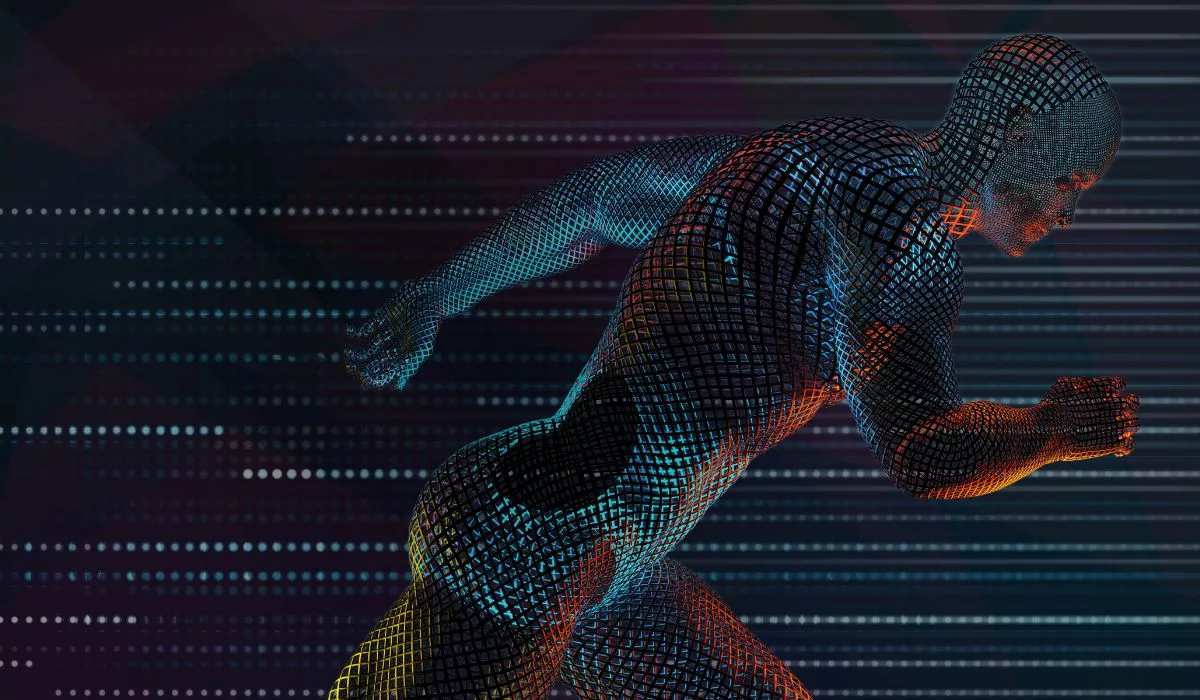





Leave a Reply